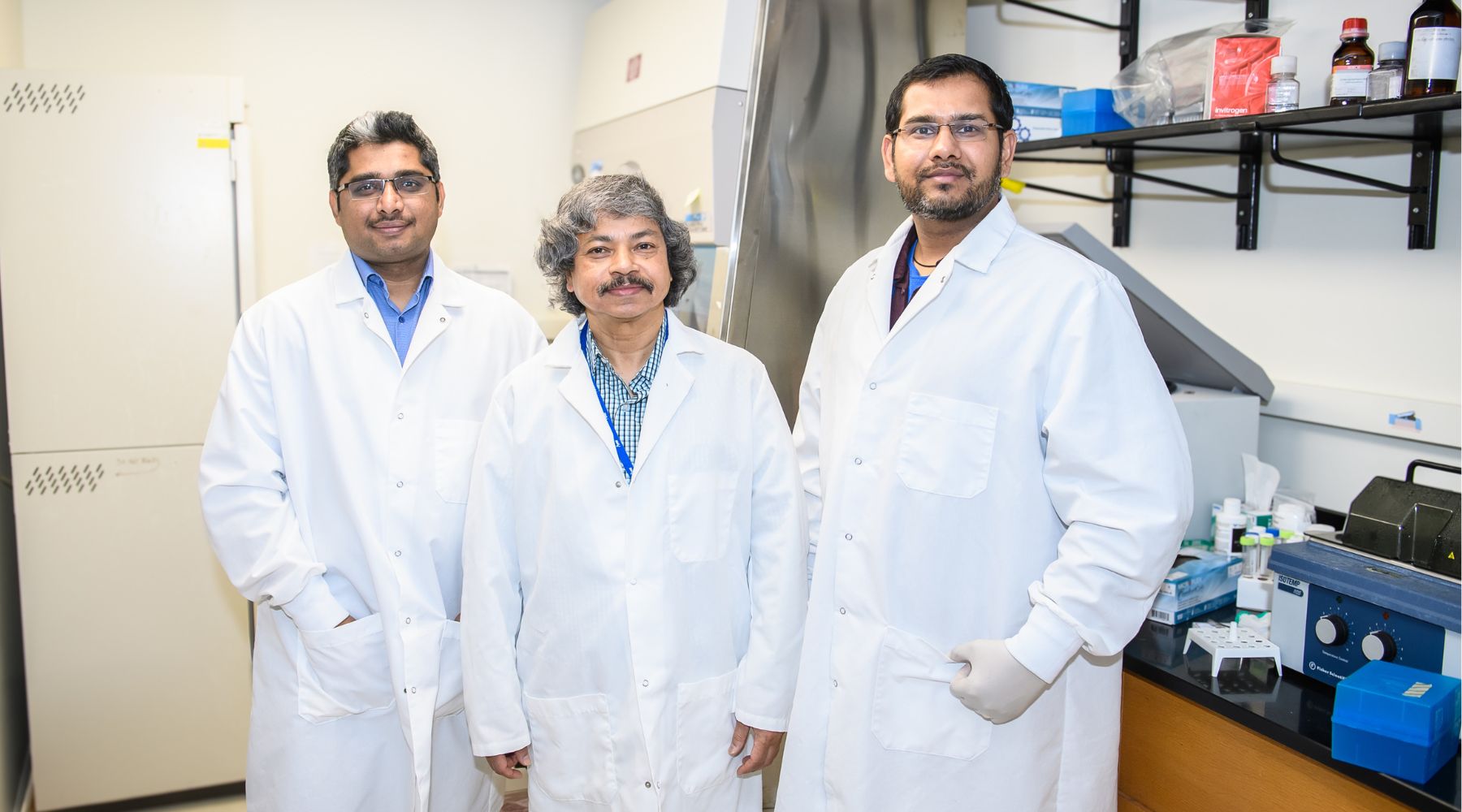Scientists at the Oklahoma Medical Research Foundation are one step closer to determining the genetic trigger for lupus in some people.
Over two years of experiments, Swapan Nath, Ph.D., led an OMRF research team that identified a specific genetic variant and its associated effects.
Manish Kumar Singh, Ph.D., an assistant staff scientist in Nath’s lab, discovered a variant in a gene known as KLF2 that appears to predispose people of Asian descent to lupus. Singh’s work required a DNA-editing tool called CRISPR-Cas9, which has revolutionized genetic research since it became available a dozen years ago.
“Without CRISPR-Cas9, this discovery would not have been possible,” said Nath, who holds the William H. and Rita Bell Endowed Chair for Biomedical Research at OMRF.
Nath determined that the variant affects how KLF2 functions. This appears to negatively affect normal cellular activities, and that, Nath theorizes, is triggering lupus in certain populations.
Lupus causes the body’s immune system to attack healthy tissue, leading to inflammation and potentially life-threatening kidney damage. Symptoms can include joint pain, fatigue, fever, sensitivity to sunlight and skin rash. The disease primarily affects women of childbearing age. It is most common in those of African origin, with Asian females not far behind.
Nath said the next steps involve testing the effects of the genetic variant, using blood samples from lupus patients of multiple races.
“Lupus is an extremely complex disease that we still don’t fully understand,” said OMRF Executive Vice President and Chief Medical Officer Judith James, M.D., Ph.D. “Dr. Nath’s painstaking research is aimed at pinpointing the genetic triggers of lupus, and his latest discovery is another critical step toward identifying new treatment options.”
The research journal Annals of Rheumatic Diseases published Nath’s discovery. His research was supported by grant Nos. R21AI168943 and R01AI172255 from the National Institute of Allergy and Infectious Diseases, and by supporting grants from the Oklahoma City-based Presbyterian Health Foundation.
OMRF scientist Harikrishna Reddy Rallabandi, Ph.D., also contributed to the discovery, along with researchers in China and at the University of California, San Diego.



